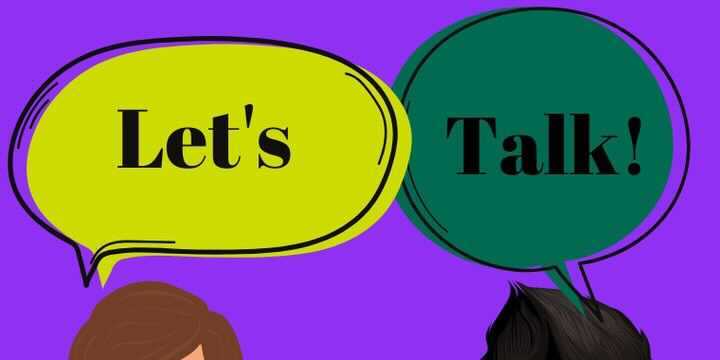According to the American Psychiatric Association (APA), lack of accessibility to mental health care services is prominent within minority communities. The University Counseling Center (UCC), Multicultural Resource Center (MRC) and Q Center aim to combat that reality with their “Let’s Talk” sessions.
During a “Let’s Talk” session, students can sit down with a counseling liaison from the UCC during specified walk-in hours to talk about any issue they may face. Each program is aimed toward a particular historically disadvantaged community. For the MRC program, Arlene Arisme, senior counselor for the UCC and multicultural specialist, is available for students in the cultural community seeking aid. For the Q Center program, Lesley Lopez, senior counselor at the UCC and LGBTQ+ specialist, is able to help those in the LGTBQ+ community.
Lopez wrote that the “Let’s Talk” program is a nationally recognized, confidential service to provide people with mental health consultations. According to MRC Director Tanyah Barnes, UCC, in collaboration with other campus staff, created the program to help historically disenfranchised communities to get counseling. The first program was conducted by the Educational Opportunity Program (EOP) and was later adopted by the MRC in 2018 and by the Q Center this year.
“The MRC ‘Let’s Talk’ program has been operating for about three years, beginning in 2018, with a goal of supporting students in the cultural community, which includes the historically minoritized populations, religious community and LGBTQ+ community,” Barnes wrote.
According to the APA, in 2015, 48 percent of white individuals received mental health care as opposed to 31 percent for Blacks and Hispanics, and 22 percent for Asians. Although the APA found white people are more likely to have mental health disorders, the difficulty with mental health issues can be more pervasive in diverse communities.
According to Barnes, Arisme has some spots open in her calendar for appointments from students in the multicultural community for an official counseling session if preferred over the drop-in session. Arisme holds the “Let’s Talk” program from 4 p.m. to 6 p.m. every Tuesday.
Lopez holds the Q Center’s program every Monday from 3 p.m. to 5 p.m. Q Center Director Kelly Clark wrote that she hopes students will use Lopez as an outlet for their own mental health needs and gain more counseling if needed.
“We are hoping that students will see [Lopez] as a resource for when things are bothering them,” Clark said. “She can be a sounding board, someone to touch base with and brainstorm an issue or situation. If from there a student really needs counseling, they can have that conversation.”
According to the APA, individuals who are part of the LGBTQ+ community are two and a half times more likely to experience a mental health disorder than heterosexual individuals while the rates of suicide for lesbian, gay and bisexual young people are nearly four times greater than heterosexuals of the same age group. Most LGBTQ+ individuals have associated access to mental health services with a large amount of stigma and often receive rejection from family members rather than support when seeking help.
Although the pandemic poses issues for the first-year Q Center program, Clark wrote that she sees a bright future ahead.
“The first year of ‘Let’s Talk’ with the MRC was very slow going but has since picked up some,” Clark wrote. “I expect that it will take some time for students to catch on, especially in this climate of limited contact with the Q Center because we are not open right now to student traffic.”
Lopez wrote that she is at the session to listen to students’ issues and noted the difficulties emerging with post-election stress.
“My role in the consultation is to listen to a problem or concern and offer informal support and perspective to the student,” Lopez wrote. “I also want to mention that this can be a space to address post-election stress. I can also provide information about resources at the UCC or other campus resources that are relevant. The ‘Let’s Talk’ consultation is not meant to replace traditional counseling services nor is it meant to be a crisis session.”
Soledad Arianna Perez, a junior majoring in Spanish, wrote that there is a lack of resources for the LGBTQ+ community on campus, but believes this session provides a necessary ability to access mental health resources.
“I believe that this session would be invaluable especially for LGBTQIA+ students who have been on the waiting list for a therapist or have already hit the ‘time limit’ put in place by UCC,” Perez wrote. “Students on campus have very limited options right now to see a therapist who has specialized in the queer community and being in a pandemic during such an important election year these students need this access more now than ever. I hope this session can be the start of more accessibility to mental health resources for the communities most at risk and in need of them.”
Lopez wrote that she hopes the “Let’s Talk” sessions, along with her specialization, will aid the LGBTQ+ community at Binghamton University.
“I hope students will be able to meet with me and get a sense of what talking to a counselor can be like, and I hope to be able to provide them with assistance with difficulties they might be facing,” Lopez wrote. “Given that the LGBTQ+ community is a marginalized group who is more likely to experience mental health struggles, an increase in mental health care access is important.”
Clark added that she encourages students to take advantage of these offerings.
“I hope that students who may have never been to counseling will also see it as an opportunity to speak with a counselor to see what it’s like,” Clark wrote. “It’s very different from getting advice from friends or family.”



